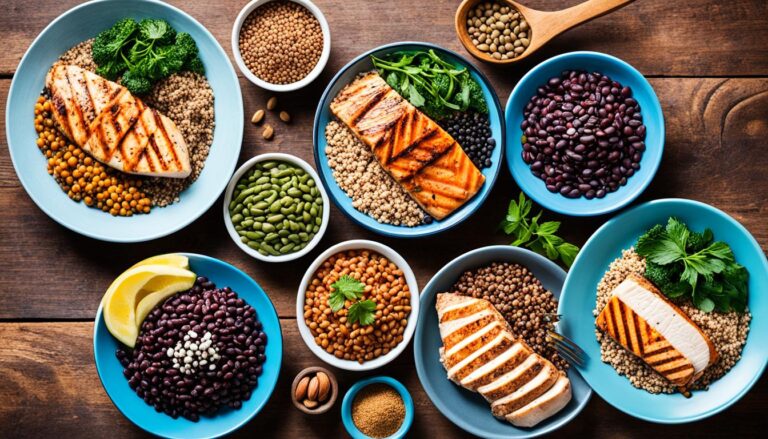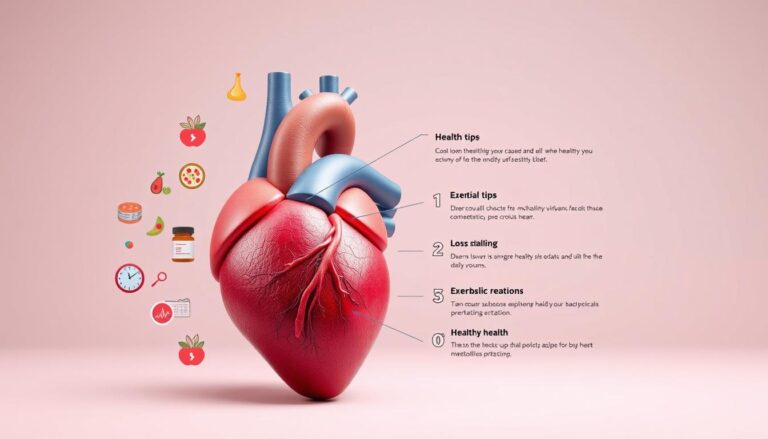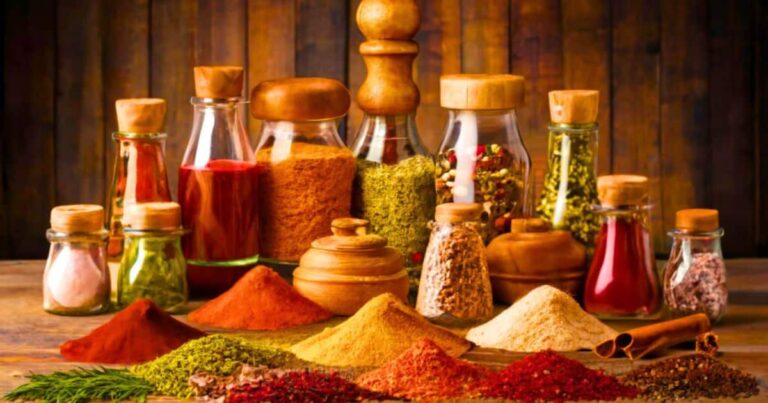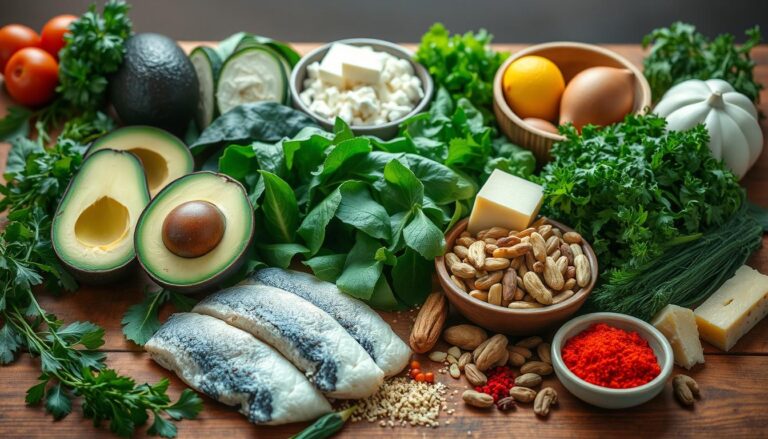What if the most important health decisions you make aren’t about your heart or weight but about an organ you rarely think about?
Your liver works tirelessly behind the scenes, performing over 500 vital functions. It filters toxins processes nutrients, and regulates metabolism. Yet most people give it little attention until problems arise.
Leading hepatologists from Johns Hopkins and University of Texas emphasize that proactive care is essential for overall wellness. Simple daily choices can significantly impact this crucial organ’s performance and longevity.
This article reveals seven evidence-based strategies to maintain optimal function and prevent disease. These practical approaches are easier to implement than you might expect.
Key Takeaways
- Your liver performs hundreds of essential functions daily
- Proactive care prevents serious health complications
- Small daily changes create significant long-term benefits
- Expert recommendations from top medical institutions
- Simple strategies fit easily into any lifestyle
- Prevention is more effective than treatment
- Overall wellness depends on liver health
Why Your Liver Health Matters More Than You Think
Your liver works tirelessly behind the scenes, performing over 500 essential functions that keep your body running smoothly. Many people underestimate this organ’s importance until problems arise. Understanding its critical role and the consequences of neglect forms the foundation for effective hepatic wellness strategies.
The Liver’s Critical Functions in Your Body
This remarkable organ serves as your body’s primary filtration system. It constantly cleanses your blood, converting toxins into waste products for elimination. The liver also metabolizes nutrients and medications ensuring your body receives what it needs while filtering out harmful substances.
Beyond detoxification, your liver handles crucial nutrient processing. It stores vitamins and minerals regulates blood sugar levels, and produces bile for fat digestion. The organ also creates essential proteins for blood clotting and fluid balance. These functions make optimal liver function vital for overall health.
Protein synthesis represents another key responsibility. Your liver produces albumin and clotting factors that maintain proper blood composition. Without these proteins your body couldn’t transport nutrients or heal wounds effectively.
Consequences of Poor Liver Health
Neglecting your liver can lead to serious health complications. Metabolic dysfunction associated steatotic liver disease MASLD affects millions of Americans often going undiagnosed until advanced stages. This condition involves fat accumulation in liver cells impairing normal function.
Chronic liver issues may progress to cirrhosis, where scar tissue replaces healthy liver cells. This irreversible damage severely compromises liver function and can necessitate liver transplantation. Approximately 100 million Americans have undiagnosed liver disease highlighting the need for proactive care.
Early intervention through hepatic wellness strategies can prevent these severe outcomes. Regular monitoring and healthy lifestyle choices significantly reduce your risk of developing serious liver conditions. Your liver’s incredible workload deserves consistent support and attention.
Tip 1: Eat a Nutrient Dense Diet That Supports Liver Function
Your dietary choices play a crucial role in maintaining optimal liver function. Research published in the journal Nutrients demonstrates that specific eating patterns can significantly reduce liver inflammation and fat accumulation.
A well planned diet provides the essential building blocks your liver needs to perform its vital functions effectively.

Top Foods for Liver Health
Focus on incorporating these liver-supportive foods into your daily meals:
- Fiber rich vegetables like broccoli, spinach, and Brussels sprouts
- Fresh fruits particularly berries and citrus varieties
- Whole grains including oats, brown rice, and whole wheat
- Lean proteins from plant sources and fatty fish
- Healthy fats found in nuts, seeds, and olive oil
The green Mediterranean diet study from Gut journal highlights how plant-based foods significantly improve liver markers. These foods provide antioxidants vitamins, and minerals that help your liver process toxins more efficiently while reducing oxidative stress.
Foods That Harm Your Liver
Certain foods can create additional strain on your liver’s detoxification systems. Limit or avoid these items to maintain optimal liver health:
- Saturated fats from red and processed meats
- Refined carbohydrates like white bread and pastries
- Added sugars in sodas and sweetened beverages
- High-calorie meals that contribute to fat accumulation
- Excessive alcohol which directly damages liver cells
Research indicates that reducing these problematic foods can prevent fatty liver disease and improve overall metabolic health. Making conscious choices about what you eat represents one of the most effective strategies for supporting your liver’s natural functions.
Tip 2: Maintain a Healthy Weight to Prevent Fatty Liver Disease
Your weight plays a crucial role in your liver’s well-being. Excess body fat, particularly around the abdomen, directly impacts liver function and increases your risk for serious conditions. Maintaining a healthy weight represents one of the most effective strategies for fatty liverprevention and overall metabolic health.
Understanding Non-Alcoholic Fatty Liver Disease
Non-alcoholic fatty liver disease NAFLD recently renamed metabolic dysfunction-associated steatotic liver disease MASLD affects approximately 25% of adults globally. This condition occurs when excess fat accumulates in liver cells despite minimal alcohol consumption.
MASLD develops when your body cannot properly process fats causing them to build up in liver tissue. This fat accumulation can lead to inflammation, scarring, and eventually cirrhosis if left unaddressed. The condition strongly correlates with obesity insulin resistance, and metabolic syndrome.
Research confirms that even moderate weight reduction significantly improves liver health. Losing just 7-10% of your starting weight translates to substantial reductions in liver fat content, inflammation, and scarring.
Evidence Based Weight Loss Strategies for Liver Health
Effective weight loss for liver health requires sustainable approaches rather than quick fixes. Fad diets often produce temporary results but fail to address the underlying metabolic issues contributing to MASLD.
These science-backed strategies support lasting weight management and liver function improvement:
- Calorie-controlled balanced nutrition Focus on creating a moderate calorie deficit through whole foods
- Regular physical activity Combine aerobic exercise and strength training for optimal metabolic benefits
- Behavior modification Develop sustainable eating patterns and address emotional triggers
- Professional guidance Work with registered dietitians or healthcare providers for personalized plans
The Mediterranean diet pattern consistently demonstrates benefits for liver health emphasizing vegetables fruits whole grains lean proteins, and healthy fats. This approach supports gradual, sustainable weight loss while providing essential nutrients for liver function.
| Weight Loss Approach | Weekly Weight Loss Goal | Liver Health Benefits | Sustainability Rating |
|---|---|---|---|
| Moderate Calorie Reduction | 1-2 pounds | Reduces liver fat by 30-40% | High |
| Mediterranean Diet Pattern | 0.5-1 pound | Improves liver enzyme levels | Very High |
| Intermittent Fasting | 1-2 pounds | Enhances liver autophagy | Medium |
| Low-Carbohydrate Approach | 1-3 pounds | Reduces liver inflammation | Medium |
Remember that consistency matters more than intensity when implementing weight loss strategies for liver health. Small maintainable changes create lasting results that significantly impact your fatty liver prevention efforts.
Regular monitoring and adjustments ensure your approach remains effective as your body changes. Celebrate non-scale victories like improved energy levels better sleep quality, and reduced waist circumference all indicators of improving liver health.
Tip 3: Limit Alcohol Consumption to Protect Your Liver
Alcohol consumption represents one of the most significant modifiable factors affecting liver wellness. Understanding how alcohol interacts with your body helps you make informed decisions about drinking habits.

Read more: The Top Water Detox for Effective Weight Loss
How Alcohol Damages Liver Cells
When you consume alcohol your liver works overtime to process it. The organ breaks down ethanol into acetaldehyde a toxic compound that damages liver cells. This process creates inflammation and oxidative stress throughout the liver tissue.
Repeated alcohol exposure leads to fat accumulation in liver cells, known as steatosis. Continued drinking causes inflammation alcoholic hepatitis and eventually permanent scarring cirrhosis. The liver’s remarkable regenerative capacity becomes overwhelmed by constant alcohol exposure.
Women face particular vulnerability to alcohol-related liver damage. Biological differences mean women absorb more alcohol and metabolize it slower than men. This results in higher blood alcohol concentrations and increased liver toxicity even with equivalent consumption.
Recommended Alcohol Limits for Liver Protection
Medical authorities provide clear guidelines for alcohol consumption to maintain liver health. These recommendations aim to minimize the risk of alcohol-related liver disease while acknowledging social drinking patterns.
The most conservative approach comes from recent Canadian guidelines suggesting zero alcohol as the safest option for liver protection. For those who choose to drink, moderation remains essential.
Standard recommendations suggest:
- Men: No more than 3 drinks per day
- Women: No more than 2 drinks per day
- All adults: Several alcohol-free days each week
Remember that these represent maximum limits, not recommended targets. Even moderate drinking carries some risk to liver health. Individuals with existing liver conditions or family history of liver disease should consider complete abstinence.
| Drink Type | Standard Serving Size | Alcohol Content | Liver Processing Time |
|---|---|---|---|
| Beer | 12 oz | 5% alcohol | 1-2 hours |
| Wine | 5 oz | 12% alcohol | 2-3 hours |
| Distilled Spirits | 1.5 oz | 40% alcohol | 3-4 hours |
| Malt Liquor | 8 oz | 7% alcohol | 1.5-2.5 hours |
Your personal alcohol limits depend on multiple factors including age, genetics, and overall health. Consult your healthcare provider for personalized recommendations based on your specific situation and liver health status.
Tip 4: Exercise Regularly to Enhance Liver Function
Physical activity serves as a powerful catalyst for liver function improvement. Moving your body consistently creates positive changes that extend far beyond weight management. Research demonstrates that exercise directly benefits hepatic wellness through multiple physiological pathways.
How Physical Activity Improves Hepatic Wellness
Exercise triggers remarkable metabolic processes that support liver health. When you engage in physical activity your body burns triglycerides for immediate energy. This process reduces the fat accumulation in liver cells, even without significant weight loss.
Aerobic exercise increases insulin sensitivity, helping your body regulate blood sugar more effectively. This reduces the metabolic strain on your liver. Resistance training builds muscle mass, which improves your body’s overall metabolic rate.
Research has linked exercise to lower risk of liver disease, and studies have found that people with NAFLD who engage in aerobic or resistance exercise for about 45 minutes three times a week can reduce their fatty liver by 20 to 30 percent within 12 weeks.
University of Missouri research confirms that combined diet and exercise interventions produce dramatic liver health improvements. The study participants showed significant reduction in liver inflammation markers and improved enzyme levels.
Best Exercises for Liver Health
Not all exercises provide equal benefits for liver function improvement. The most effective routine combines different training modalities. This approach addresses various aspects of metabolic health that support hepatic function.
Aerobic activities remain fundamental for liver health. Brisk walking, cycling, and swimming improve cardiovascular fitness while burning liver fat. Aim for 150 minutes of moderate intensity aerobic exercise weekly.
Resistance training builds metabolic machinery. Weight lifting resistance bands, and bodyweight exercises increase muscle mass. More muscle means better glucose control and reduced liver fat storage.
High-intensity interval training (HIIT) offers time-efficient benefits. Short bursts of intense activity followed by recovery periods boost metabolism significantly. HIIT sessions can be completed in 20-30 minutes.
| Exercise Type | Frequency | Duration | Liver Benefits |
|---|---|---|---|
| Aerobic Exercise | 3-5 times/week | 30-45 minutes | Burns liver fat, improves circulation |
| Resistance Training | 2-3 times/week | 20-30 minutes | Builds muscle, improves metabolism |
| HIIT Workouts | 1-2 times/week | 20-30 minutes | Boosts metabolic rate, enhances insulin sensitivity |
| Flexibility Exercises | Daily | 10-15 minutes | Reduces stress, supports recovery |
Consistency matters more than intensity when beginning an exercise program. Start with manageable sessions and gradually increase duration and difficulty. Even modest increases in physical activity contribute to liver function improvement.
Remember to consult your healthcare provider before starting any new exercise regimen, especially if you have existing health conditions. They can help tailor an exercise program that supports your specific liver health needs.
Tip 5: Minimize Exposure to Toxins and Chemicals
Your liver works tirelessly to filter toxins, but modern environmental exposures can overwhelm its natural detoxification capacity. Reducing your contact with harmful substances represents one of the most effective natural liver detox methods you can practice daily.
Environmental Toxins That Burden Your Liver
Common household products contain chemicals that directly challenge liver function. Cleaning agents, aerosol sprays, and insecticides introduce compounds that require extensive processing by your liver.
These substances can injure liver cells when exposure occurs frequently or in large quantities. Many people overlook these everyday items as potential threats to hepatic health.
Consider switching to natural alternatives for cleaning and pest control. Proper ventilation during product use significantly reduces chemical inhalation. Protective gloves prevent skin absorption of toxins during household chores.
Safe Medication Use and Liver Protection
Pharmaceuticals and supplements require careful liver processing. Approximately 20% of drug-induced liver injury cases in the United States originate from herbal and dietary supplements.
Certain supplements pose particular risks to liver health. Ashwagandha chapparal, and kava have all been associated with documented cases of hepatotoxicity. These unregulated products may contain contaminants or interact poorly with prescription medications.
Always consult your physician before starting new supplements or medications. Share your complete medication list with all healthcare providers to avoid dangerous combinations. Report any unusual symptoms immediately when beginning new treatments.
Your liver’s detoxification capacity depends on minimizing unnecessary chemical exposures. Through conscious choices about household products and medications, you support your liver’s vital filtering work without overwhelming its natural capabilities.
Tip 6: Stay Hydrated and Support Natural Liver Detox Methods
Proper hydration serves as a fundamental pillar for optimal liver performance and natural detoxification processes. While many people seek quick fixes through commercial cleanses, your liver already possesses sophisticated mechanisms for eliminating toxins.
Supporting these natural processes through adequate water intake and balanced nutrition offers the most sustainable approach to liver health.
The Role of Hydration in Liver Function
Water acts as the primary transport medium for your liver’s detoxification work. This vital organ processes toxins and waste products, then relies on adequate hydration to flush them from your system. Without sufficient water, these substances can accumulate and create additional strain on hepatic function.
Dehydration forces your liver to work harder to perform its essential filtering duties. Research shows that even mild dehydration can reduce liver efficiency by up to 15%.
Drinking water consistently throughout the day maintains optimal blood volume, allowing your liver to receive adequate oxygen and nutrients while efficiently removing metabolic byproducts.
Most adults need approximately eight 8-ounce glasses of water daily, though individual needs vary based on activity level and climate.
Herbal teas and water-rich foods like cucumbers and watermelon also contribute to your daily hydration goals. Remember that thirst often indicates your body is already experiencing dehydration, so drink water regularly before feeling thirsty.
Natural Liver Cleanse Diet Approaches
Despite popular marketing claims, extreme liver cleanse diet programs often do more harm than good.
Your liver naturally excretes toxins through bile production and bowel movements without requiring special cleanses or expensive supplements. Instead of drastic measures, focus on dietary patterns that support your liver’s innate detoxification capabilities.
Myth #1: Liver cleanses are important for daily health maintenance… Johns Hopkins hepatologists do not recommend them.
Evidence-based approaches emphasize whole foods that provide nutrients essential for liver enzyme systems.
Cruciferous vegetables like broccoli and Brussels sprouts contain compounds that support phase II detoxification pathways. Foods rich in antioxidants, such as berries and leafy greens help protect liver cells from oxidative stress during toxin processing.
A balanced liver cleanse diet approach includes adequate protein for glutathione production, your body’s master antioxidant.
Lean meats, legumes and dairy products provide amino acids necessary for this process. Fiber rich foods promote regular bowel movements ensuring toxins eliminated through bile don’t get reabsorbed into your system.
Rather than periodic extreme cleanses, adopt consistent eating patterns that include hydration-supporting foods and liver friendly nutrients. This sustainable approach supports your liver’s natural abilities without the risks associated with unproven detox products or fasting regimens.
Tip 7: Schedule Regular Health Screenings and Monitor Liver Function
Proactive health monitoring forms the foundation of lasting liver wellness. Regular screenings become particularly crucial since liver disease often develops silently without obvious signs of liver damage until advanced stages.
Understanding your personal risk profile empowers you to take preventive action before problems escalate.
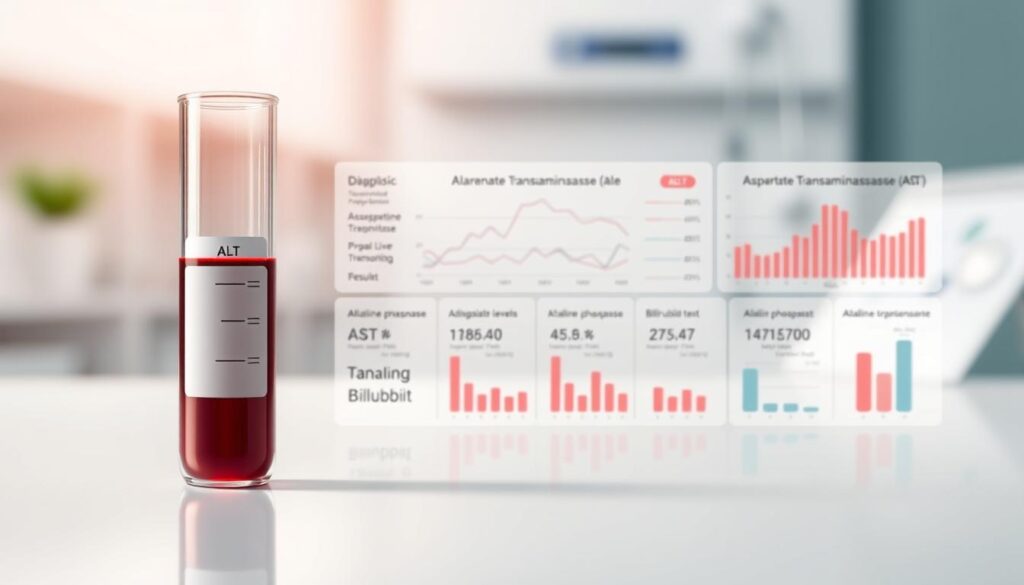
Read more: 7 Signs Your Body Is Detoxing
Essential Liver Function Tests
Comprehensive liver assessment typically includes several blood tests that provide valuable insights into your hepatic health. These screenings measure specific enzymes and proteins that indicate how well your liver is functioning.
The most common liver function tests include:
- ALT Alanine Transaminase Elevated levels suggest liver inflammation or damage
- AST Aspartate Transaminase Another enzyme that increases with liver injury
- Alkaline Phosphatase Often elevated in bile duct disorders
- Bilirubin High levels may indicate processing problems
- Albumin Low levels can signal chronic liver disease
Your doctor might recommend additional tests based on your risk factors, including imaging studies like ultrasound or FibroScan to assess liver texture and fat content.
When to Seek Medical Evaluation
Certain risk factors warrant more frequent liver health monitoring. If you have obesity, excessive alcohol consumption family history of liver disease or potential hepatitis exposure, regular screening becomes especially important.
Vaccinations offer powerful protection against specific liver threats. Hepatitis A and B vaccines can prevent these viral infections that potentially cause significant liver damage.
Seek prompt medical evaluation if you experience persistent symptoms that might indicate signs of liver damage, including:
- Unexplained fatigue that doesn’t improve with rest
- Yellowing of skin or eyes jaundice
- Dark urine or pale-colored stools
- Abdominal swelling or pain in the upper right quadrant
- Nausea vomiting, or loss of appetite
Remember that early detection through regular screenings provides the best opportunity for successful intervention. Don’t wait for obvious signs of liver damage to appear before taking action proactive monitoring could save your liver and your life.
Recognizing the Warning Signs of Liver Damage
Liver conditions often develop silently, making early detection challenging. Many people experience no noticeable symptoms until significant damage has occurred. Understanding the subtle signals your body sends can be crucial for timely intervention and treatment.
Early Symptoms of Liver Problems
Initial signs of liver damage are often mild and easily mistaken for other common health issues. These subtle indicators may include:
- Persistent fatigue that doesn’t improve with rest
- Mild abdominal discomfort in the upper right quadrant
- Unexplained weight loss or loss of appetite
- Occasional nausea without apparent cause
Many people dismiss these early warnings as stress or minor digestive issues. The liver’s remarkable regenerative capacity means it can compensate for damage initially, masking more serious underlying problems.
Advanced Signs Requiring Immediate Medical Attention
When liver damage progresses, symptoms become more pronounced and concerning. These advanced indicators signal potentially serious conditions that demand prompt medical evaluation:
| Symptom Category | Specific Indicators | Potential Significance |
|---|---|---|
| Skin Changes | Yellowing of skin/eyes jaundice spider angiomas | Impaired bilirubin processing |
| Abdominal Issues | Severe pain, swelling, fluid accumulation | Possible liver inflammation or failure |
| Neurological Symptoms | Confusion, difficulty concentrating, tremors | Hepatic encephalopathy development |
| Digestive Changes | Dark urine, pale stools, vomiting blood | Advanced liver dysfunction |
These advanced symptoms often indicate that the liver’s compensatory mechanisms are failing. Immediate medical attention becomes essential when these signs appear, as they may represent turning points in disease progression.
Chronic liver disease can be silent for years and go unrecognized until substantial damage has occurred.
Regular health monitoring becomes particularly important for those with risk factors for liver problems. Early detection through screening tests can identify issues before symptoms develop, allowing for more effective treatment options.
Implementing These Liver Healthy Tips for Long-Term Wellness
Taking control of your liver health requires more than just knowing the right strategies. It demands consistent action and personalized planning.
The good news is that even people with existing liver issues can see remarkable improvements. Research shows that those with excess liver fat or mild scarring can completely reverse the damage through dedicated lifestyle changes.
Creating Your Personalized Liver Health Action Plan
Every person’s liver health journey is unique. Your action plan should reflect your specific needs, risk factors, and current health status. Start by assessing which areas need the most attention based on your lifestyle and health history.
Consider these steps when building your personalized approach:
- Evaluate your current diet and identify processed foods to eliminate
- Set realistic weight management goals if needed
- Establish clear alcohol consumption boundaries
- Create an exercise schedule that fits your routine
- Identify environmental toxins in your home or workplace
- Schedule regular hydration reminders throughout your day
- Plan your next liver function screening with your doctor
Remember that small, consistent changes often yield better long-term results than drastic overhauls. The best thing you can do for your liver is to treat it well through daily conscious choices.
Combining Strategies for Maximum Liver Function Improvement
When implemented together, these liver healthy tips create powerful synergistic effects. Each strategy supports and enhances the others, leading to greater overall liver function improvement than any single approach could achieve alone.
For example, regular exercise helps with weight management, which reduces liver fat. Proper hydration supports the liver’s natural detox processes. A nutrient-dense diet provides the building blocks for liver cell repair. When combined, these strategies create a comprehensive protection system for your liver.
| Strategy Combination | Synergistic Benefit | Implementation Tip |
|---|---|---|
| Diet + Exercise | Enhanced fat metabolism | Time meals around workouts for optimal nutrient uptake |
| Hydration + Toxin Reduction | Improved detox efficiency | Drink filtered water while reducing chemical exposure |
| Weight Management + Alcohol Limitation | Reduced inflammation | Track both calorie intake and alcohol consumption |
| Screening + All Strategies | Measurable progress tracking | Use test results to adjust your approach quarterly |
Start with the strategies that address your most pressing liver health concerns. Gradually incorporate additional approaches as you build momentum. Regular health screenings will help you track progress and make necessary adjustments to your plan.
Consistency is key to achieving long term liver wellness. Even modest improvements, maintained over time, can lead to significant liver function enhancement and overall health benefits.
Conclusion
Implementing these seven evidence-based strategies creates a powerful foundation for liver function improvement. A nutrient-rich diet healthy weight management, and limited alcohol intake work together to support your liver’s natural processes.
Regular exercise and reduced toxin exposure further enhance your liver’s performance. Proper hydration and routine health screenings complete this comprehensive approach to hepatic wellness.
Remember your liver’s remarkable ability to regenerate when given proper support. Early intervention makes a significant difference in liver function improvement outcomes.
Consult your healthcare provider to create a personalized plan that addresses your specific needs. Medical guidance ensures the safest approach to liver function improvement, especially if damage exists.
Consistent application of these practices leads to sustainable liver health. Your commitment today builds a healthier tomorrow for this vital organ.

